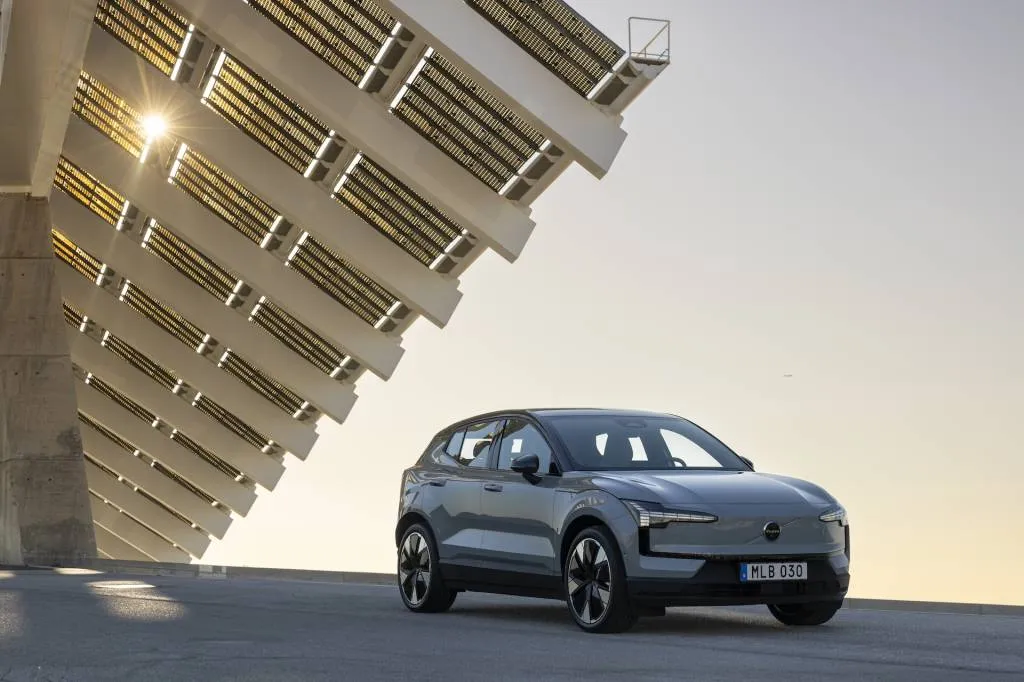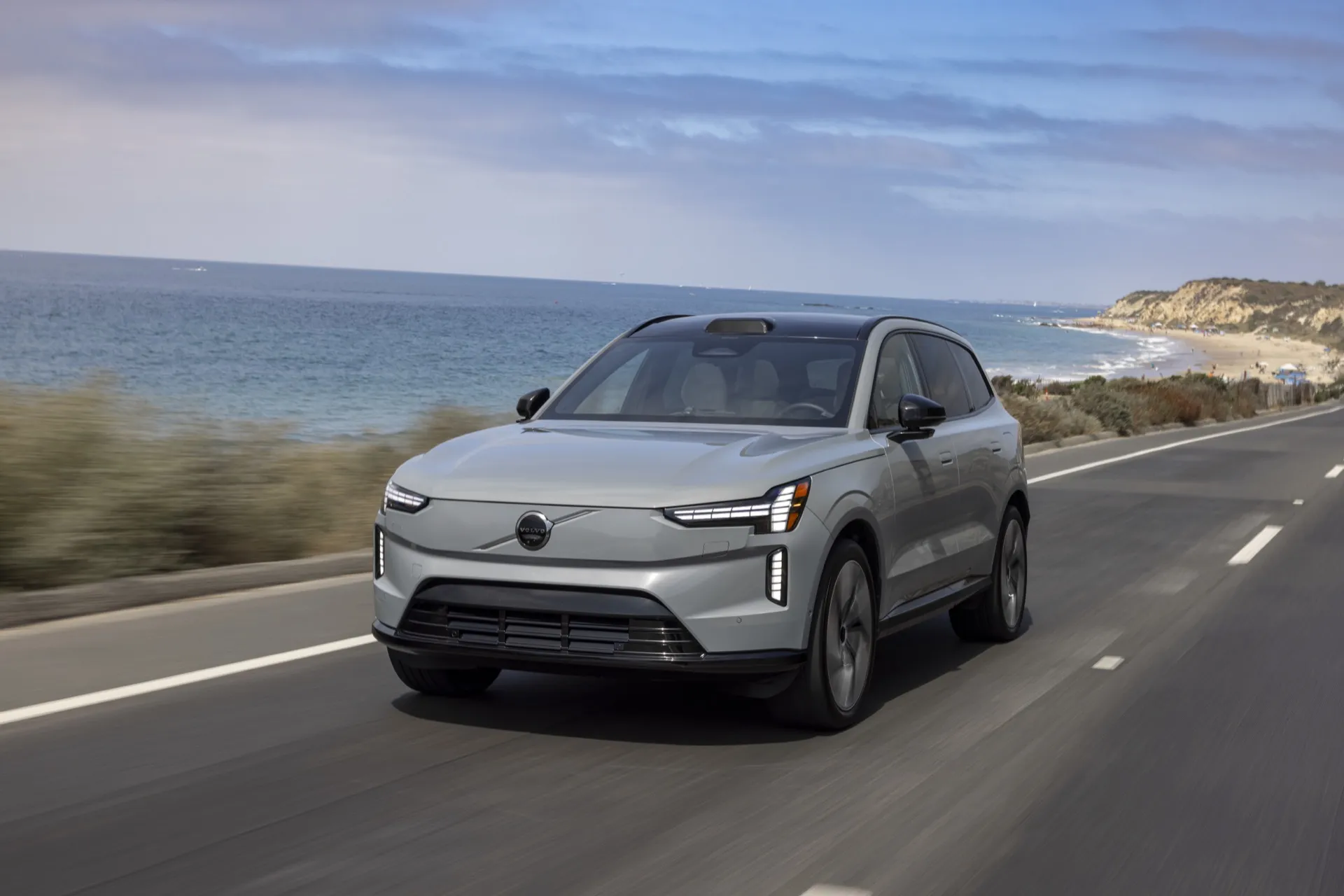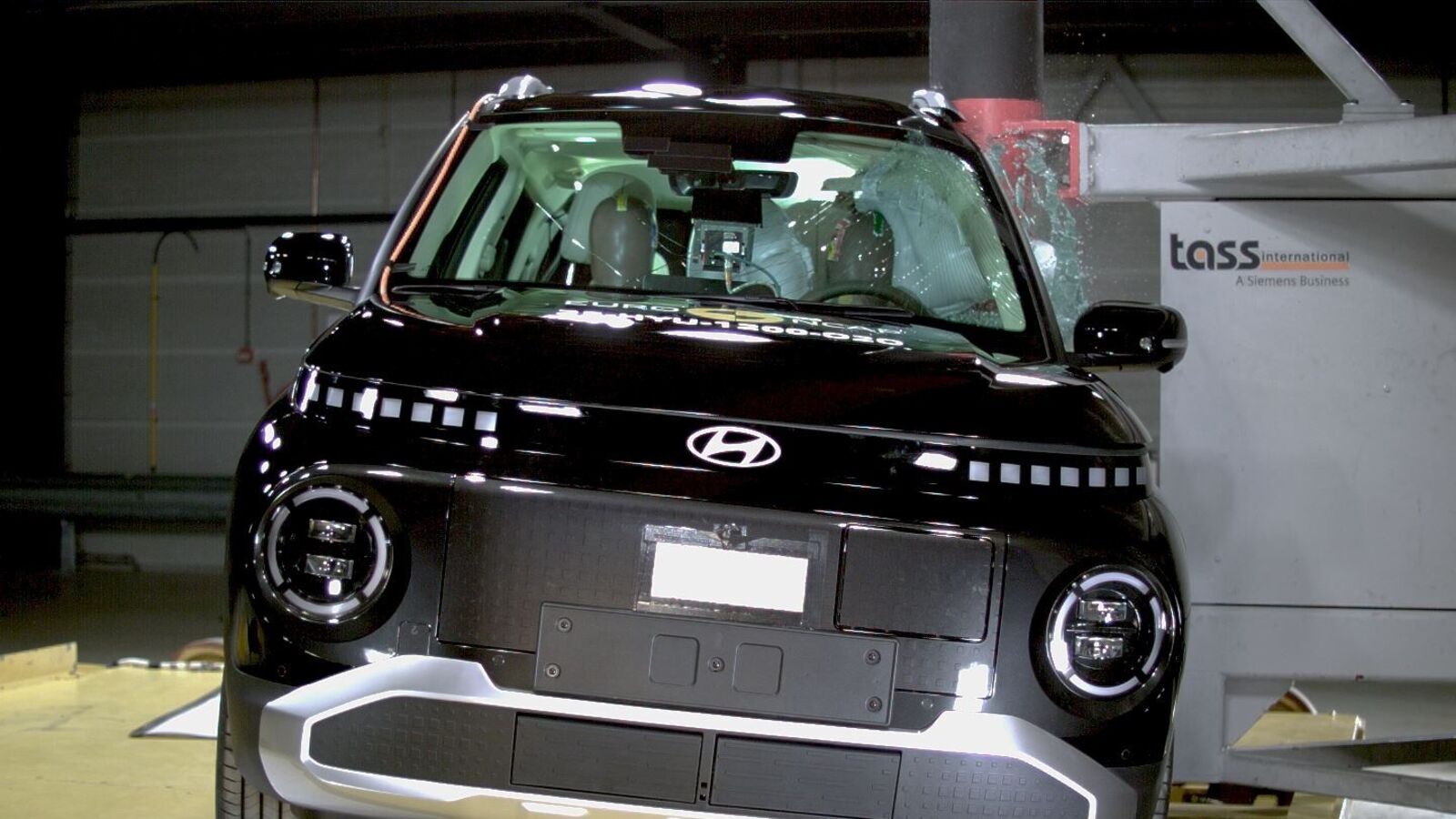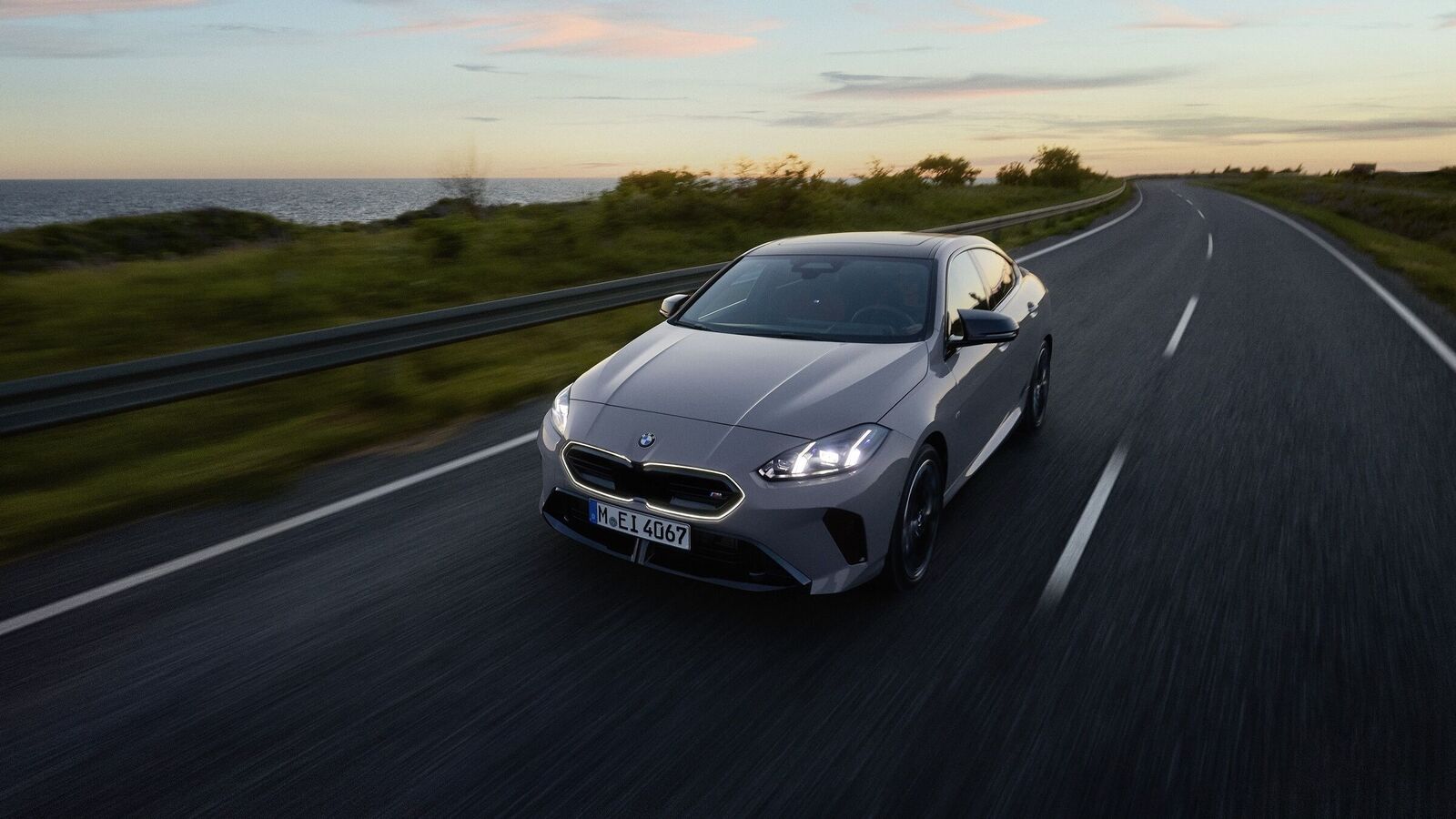Volvo is holding off on plans to make its lineup all-electric by the end of this decade, but the automaker’s boss still supports Europe’s planned phaseout of new internal-combustion vehicle sales halfway through the next decade.
Volvo and 49 companies recently signed a declaration urging the European Union not to change its current timeline, which would see new cars with gasoline or diesel engines effectively banned in member countries by 2035. That plan does include a loophole for synthetic fuels, however, so internal-combustion vehicles could still be sold if those fuels can be produced at scale and meet emissions targets.
2025 Volvo EX40 (Europe spec)
“Electrification is the single biggest action our industry can take to cut its carbon footprint,” Volvo Cars CEO Jim Rowan said regarding the EU plan. Rivian also signed the declaration, but other major automakers did not, according to Bloomberg, which noted that other signatories included companies outside of auto manufacturing like Ikea and Uber.
The EU plan has been repeatedly challenged since it was first announced in 2021. Germany successfully lobbied for the synthetic fuels loophole in 2023, and Italian officials recently called the plan “absurd,” claiming the tightening of emissions standards leading up to the internal-combustion ban should be slowed down to address changing market conditions.

2025 Volvo EX30 electric SUV (dual-motor, Vapor Grey)
Last month Volvo backtracked on a goal, announced in 2021, to become an all-electric brand by 2030. Volvo now expects 90% of its cars to be EVs or plug-in hybrids by that time, with the remaining 10% having mild-hybrid powertrains.
Volvo COO Björn Annwall told Green Car Reports that the automaker is prepared to end sales of gasoline models even if some demand still exists, and that plug-in hybrids will evolve to offer more electric range with smaller engines.




